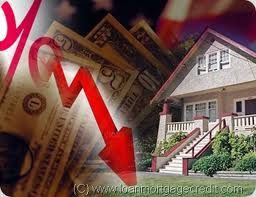Could the new Qualified Mortgage (QM) rule bring about a dangerous housing bubble?
 Could the new Qualified Mortgage (QM) rule bring about a dangerous housing bubble? According to former Fannie Mae official and housing policy analyst Edward J. Pinto, the work of the Consumer Financial Protection Bureau (CFPB) in finalizing the QM rules is slackening credit and lending standards to levels seen before 2008.
Could the new Qualified Mortgage (QM) rule bring about a dangerous housing bubble? According to former Fannie Mae official and housing policy analyst Edward J. Pinto, the work of the Consumer Financial Protection Bureau (CFPB) in finalizing the QM rules is slackening credit and lending standards to levels seen before 2008.
Pinto’s main argument against QM is that the CFPB may have allowed too much input from housing and mortgage industry groups who are essentially in cahoots with grassroots organizations and activists to keep what he calls the “Government Mortgage Complex” alive. Writing for the Washington Times and the American Enterprise Institute, Pinto asserts that the QM rule leaves final underwriting decisions to Fannie Mae, Freddie Mac and the Federal Housing Administration (FHA), which could diminish the creditworthiness of future mortgages.
Skin in the Game
Peter J. Wallison, former general counsel of the U.S. Treasury, agrees with Pinto insofar as the pitfalls of the QM rule. They give the following example of a QM that would not achieve the intended effect of ensuring that borrowers have skin in the game when it comes to home loans:
- Three percent down payment
- FICO or tri-merge score of 580
- Debt-to-income (DTI) ratio at 50 percent
Wallison and Pinto claim that the mortgage underwriting example above, which would ostensibly trigger approval from the FHA these days, would not be out of line under QM in the near future. Such a mortgage would be considered subprime material before 2008, but it would have been approved, closed, securitized, and quickly sold off to investors.
The problem with QM, according to Wallison and Pinto, comes down to government involvement. Fannie, Freddie and the FHA can take on massive amounts of risk. This would make them very attractive to originators since private investors will be substantially constrained by QM rules to purchase mortgage-backed securities (MBS) that carry so much risk. They may not even want to invest in such mortgage deals.
In the end, Pinto and Wallison believe that the CFPB has succumbed to political pressure from interest groups who want to see high levels of activity in the mortgage lending industry, similar to what they were earlier this century. By allowing themselves to be swayed by the industry, the CFPB and legislators may have missed the intent of the Dodd-Frank Wall Street Reform and Consumer Protection Act of 2010 with regard to QM, thereby leaving the doors open for another housing bubble.



